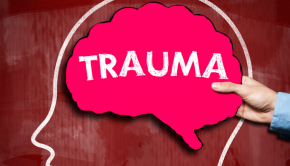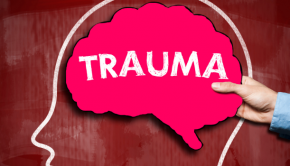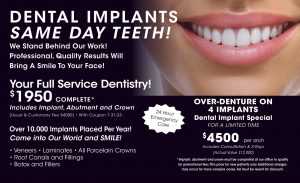Antidepressants, Depression and Pain
Pain, including neuropathic pain, is a relatively common physical complaint affecting millions of people, costing upwards of $100 billion annually, which includes medical care, workers compensation, and lost work productivity. Interestingly, one common psychiatric diagnosis encountered in patients with neuropathic pain is depression, which affects every one out of two patients, or more than half of all individuals. It is also no surprise that studies indicate that patients with pain have a substantially increased risk for depression, anywhere from two to five times that of the general population.
Given that these syndromes of depression and neuropathic pain co-exist, the assessment of either one is complicated by the presence of shared symptoms such as fatigue, sleep disturbance, irritable bowel and gut problems. While relationships between pain and depression might be considered, the most common hypotheses are that (a) depression precedes pain; (b) pain precedes depression; (c) past history of depression heightens the risk of subsequent depression in the event of new-onset pain; and (d) the two occur independently. Regardless, the level of coexistence between pain and depression is one of the basic rationales for considering antidepressant therapy as a treatment.
Antidepressants are thought to ease the pain caused by nerve damage because they are able to dampen the signals sent to and from the brain. Signals of pain or discomfort travel from the intestines and the peripheral nerves up to the brain. The brain has the ability to “turn down” the pain by sending signals that block the nerve impulses themselves. Recent studies, including brain imaging research, have shown that this ability to turn down the pain is impaired in patients with irritable bowel syndrome.
Common side effects of these drugs include dry mouth or, at times, difficulty sleeping, difficulty urinating, sexual difficulties, constipation, dizziness and/or drowsiness, low blood pressure, especially when going from sitting to standing leading to lightheadedness, weight gain from increased appetite and more. The reality is that all these systems are interconnected.
Researchers say that antidepressants do not cure or eliminate pain at all. So the question must be why are antidepressants often the first line, if not the only line, of treatment for pain? Some people are obviously concerned that these medications are addicting or may alter mental functioning. Writing a prescription to treat a health problem is easy, but it may not always be the safest or most effective route, according to some recent studies and a growing chorus of voices concerned about the rapid rise in the prescription of psychoactive drugs. Many Americans visit their primary care physicians and walk away with a prescription for an antidepressant or other drugs without being aware of other evidence-based treatments that might work better for them without the risk of side effects.
New and emerging studies are just beginning to investigate the effects of psychoactive drugs on thyroid, for instance. It is shown in preliminary studies that these drugs can induce a change in iodine capture by thyroid cells, making it unavailable for thyroid hormone synthesis; they can also inhibit thyroid peroxidase activity, HPA axis functioning and thus T3 and T4 synthesis or blood levels, respectively. More studies such as these will help to better evaluate how drugs that affect brain chemistry and nerve impulse might inadvertently impact hormone balance, as well.
As happy pill prescriptions top 50 million, any right-minded general practitioner would have to wonder whether they are being overprescribed. Meanwhile, those suffering with pain, including nerve pain and depression, have options that include relief without debilitating side effects.
Dr. Doug Pucci, DC, DPSc, FAAIM, regularly offers in-office seminars presenting the latest science and clinical data on neurotoxic illness, hormone imbalances, and chronic disease. He provides nutrition, comprehensive laboratory and bio-resonance testing, brain and body care. For more information, call 201-261-5430 or visit GetWell-Now.com.





























